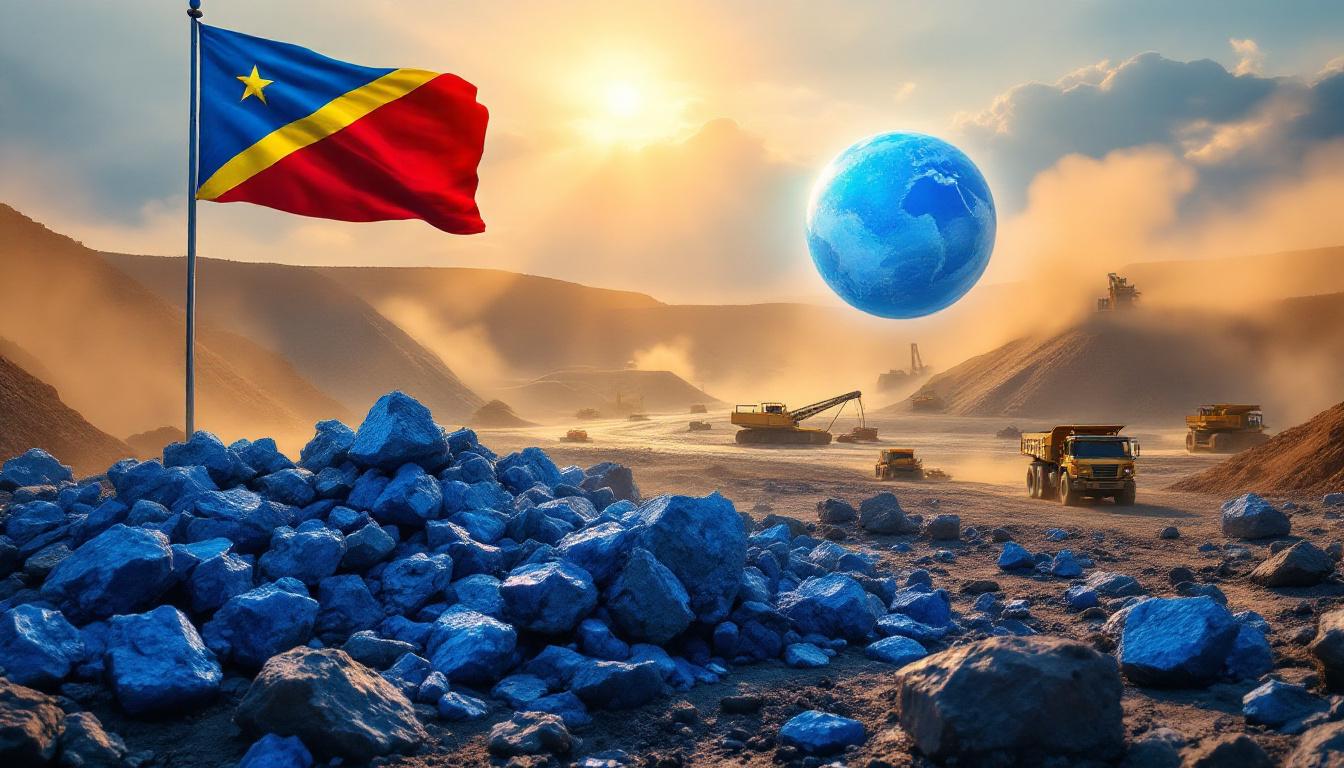Mining Other

DRC Pushes for Higher Prices to Boost Local Processing

The Democratic Republic of Congo(DRC) , which produces more than 70% of the world’s cobalt, has declared its intention to seek a higher international price for the critical mineral, arguing that undervaluation is hurting its ambitions to scale up local processing and industrialisation.
Cobalt is a vital component in electric vehicle (EV) batteries, aerospace technology, and energy storage systems, making it one of the most sought-after minerals in the global energy transition. Yet despite its dominance, the DRC remains heavily dependent on raw cobalt exports, primarily to China, where the mineral is processed into battery-grade materials and cathodes.
The DRC government has made it clear that the country no longer wants to be a mere supplier of raw materials. “We cannot continue exporting our wealth cheaply while the real value is created elsewhere,” said a senior Congolese official. “The global push for green energy must not come at the cost of Africa’s industrial development.”
Value Addition as Leverage
The move aligns with growing calls across mineral-rich African countries for better returns from their natural resources. The DRC government is reportedly preparing to engage key buyers—particularly from China and Europe—with a strategy to push cobalt prices higher, using its market dominance as leverage.
At the heart of this strategy is the demand for local processing. “We want buyers to invest in refining cobalt here in Congo,” the official added. “That’s how we create jobs, skills, and technology transfer.”
This push comes amid increasing scrutiny of global supply chains, where consumers and automakers are under pressure to ensure traceability and ethical sourcing. By boosting domestic processing, the DRC aims not only to capture more value but also to rebrand its sector as a responsible source of clean energy minerals.
Zimbabwe Sets the Tone for Local Processing
The DRC’s vision mirrors developments in other African countries such as Zimbabwe, which in 2024 banned the export of raw base minerals, including lithium, nickel, copper, and chrome. Earlier this year, Zimbabwe went a step further by announcing that from January 2027, no lithium will be allowed for export unless it is battery-grade.
Chinese-backed operations like Kamativi Mining Company, Bikita Minerals, and Arcadia Lithium Mine have already committed to building battery-grade processing plants inside Zimbabwe. The southern African country’s strategy is to position itself as a key midstream player in the global battery value chain—an ambition Congo now appears eager to emulate.
China Still Dominates Processing
While the DRC is the world’s cobalt powerhouse, China processes over 75% of the mineral globally, with most of Congo’s cobalt exported in raw form to Chinese refineries. The pricing model, heavily influenced by Chinese importers and traders, has long been criticised for undervaluing Congolese cobalt—despite its critical role in high-end technologies.
The DRC’s move to review pricing and boost domestic refining may create tensions with some buyers, but it also offers opportunities for deeper industrial partnerships. If international firms want secure, long-term access to cobalt, Congo is signalling that investment in local processing facilities could be part of the deal.
Challenges Remain
However, the DRC’s push for higher cobalt prices and local beneficiation comes with challenges. The country still faces infrastructure bottlenecks, power shortages, and regulatory uncertainty that deter long-term industrial investment. Additionally, small-scale artisanal mining—estimated to account for 15–20% of cobalt production—raises safety and traceability issues that complicate ESG compliance.
Nonetheless, with the world racing toward electrification and cobalt demand forecast to double by 2030, Congo holds a powerful bargaining chip. Whether through pricing negotiations, export taxes, or outright bans on raw exports, the country is expected to flex its market muscle in the coming months.
What’s at Stake
The DRC’s new stance represents a critical moment for global supply chains. It signals a growing determination among resource-rich countries to reclaim control and share in the wealth created from minerals that power the green economy. And with Zimbabwe already laying the groundwork for a beneficiation-based model, a broader continental shift may be underway.
As one regional analyst put it, “The world wants Africa’s minerals for its future. Africa now wants its fair share of that future.”












